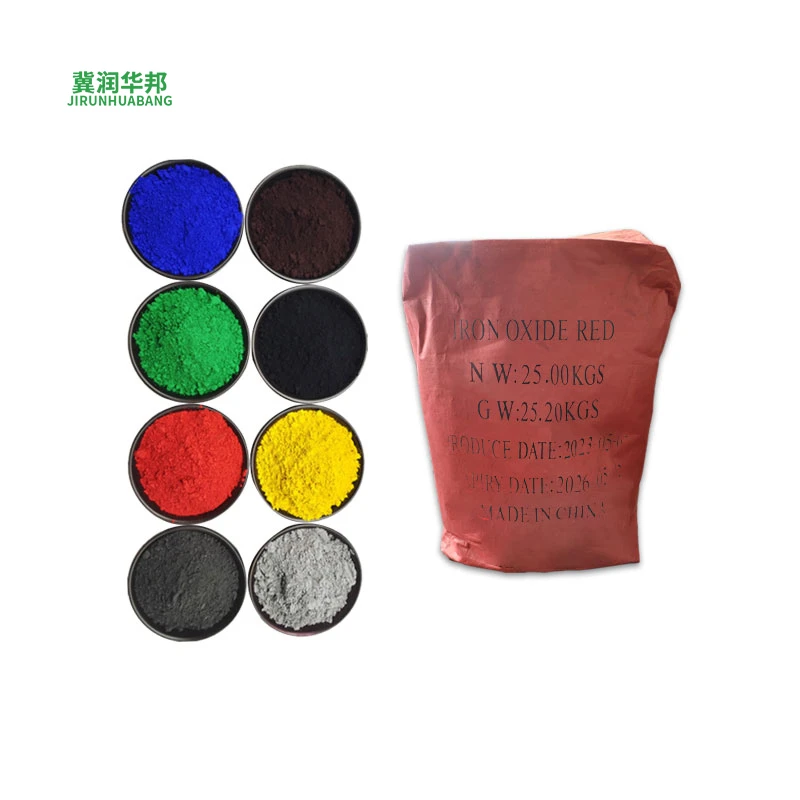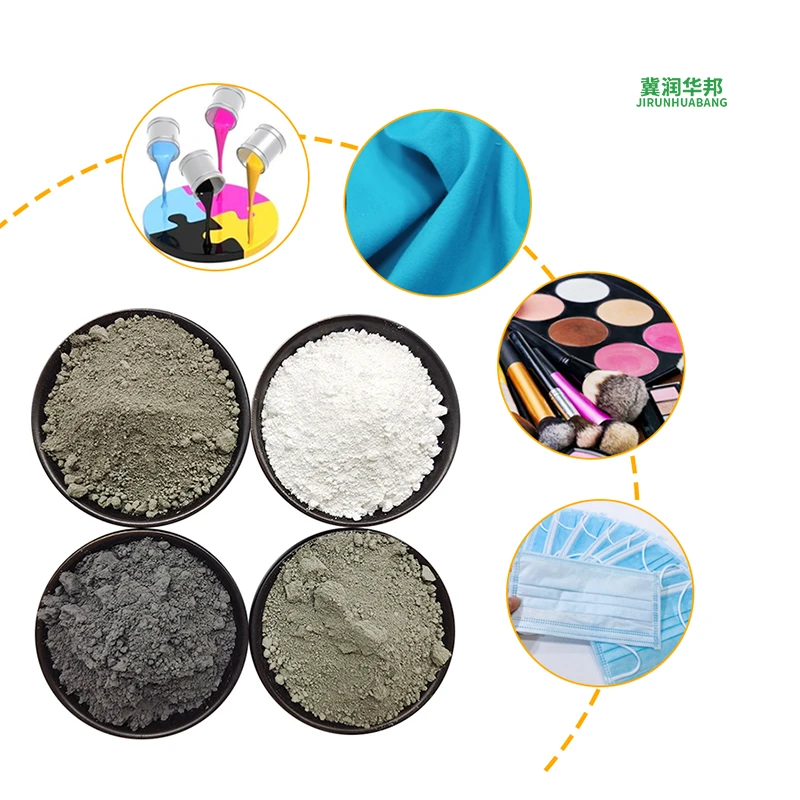Sodium Bentonite Powder Uses Key Solutions for Industry
Back to list
- Introduction to Sodium Bentonite Powder Capabilities
- Technical Properties and Engineering Advantages
- Manufacturer Performance Comparison
- Industry-Specific Formulation Options
- Documented Application Case Studies
- Environmental and Safety Protocols
- Future Development Pathways

(sodium bentonite powder uses)
Exploring Comprehensive Sodium Bentonite Powder Uses
Natural sodium bentonite powder serves as a cornerstone material across multiple industries due to its unique molecular structure. This highly absorbent clay expands up to 16 times its original volume when hydrated, creating impermeable barriers critical for containment applications. Market research indicates global consumption exceeding 6.5 million metric tons annually, with 23% year-over-year growth in environmental protection applications since 2020. The expanding utilization stems from bentonite's colloidal properties, which enable transformative solutions from drilling operations to pharmaceutical manufacturing.
Industrial users prioritize bentonite's cation exchange capacity (CEC) ranging between 70-100 meq/100g, allowing tailored absorption performance. This characteristic enables engineers to customize swelling indices based on project hydrology requirements. For instance, civil engineering teams routinely specify powders with controlled particle distribution (typically 200 mesh) to optimize geosynthetic clay liner performance in landfill caps.
Fundamental Technical Properties
Material science advancements have enhanced montmorillonite-rich bentonite to achieve predictable rheological behaviors under extreme conditions. Modern powder formulations maintain structural integrity at temperatures up to 248°F (120°C), exceeding traditional clay limitations. Viscosity retention remains within 10% of baseline measurements after thermal cycling, making it indispensable for deep-well drilling applications. Water absorption capacities reach optimum levels within 45-60 seconds of hydration, ensuring rapid barrier formation.
Laboratory testing confirms that premium sodium bentonite maintains filtration control values below 15cc/30min in API fluid loss tests. This efficiency decreases drill site contamination risks while lowering fluids consumption. X-ray diffraction analysis reveals sodium content exceeding 250 meq/kg in optimized bentonites, with calcium and potassium impurities maintained below 0.8% for superior gel-strength development.
Manufacturer Performance Comparison
| Manufacturer | Swelling Index (ml/2g) | Moisture Content (%) | Particle Size (-200 mesh) | Certifications |
|---|---|---|---|---|
| American ClayWorks | 29.5 | 7.8 | 98.7% | API-13A, ISO 9001 |
| Global Bentonite Co | 24.1 | 9.2 | 95.3% | ISO 14001 |
| EcoMinerals Ltd | 32.8 | 6.4 | 99.1% | OHSAS 18001, REACH |
| TerraSolutions Inc | 27.6 | 8.5 | 97.9% | API-13A, NSF-61 |
Independent quality assessments reveal performance variations affecting engineering outcomes. High-grade suppliers demonstrate superior colloid concentration (≥5.5%), directly correlating to barrier integrity in containment projects. Contractors report cost differentials of $25-70 per ton depending on certifications and laboratory-tested properties, demonstrating ROI considerations beyond base pricing.
Application-Driven Formulations
Industry-specific formulations address unique physical requirements for optimal performance. Environmental engineering applications utilize OCMA-grade bentonite with enhanced viscosity modifiers to create impermeable barriers capable of restricting leachate migration. Construction-grade powders incorporate polymer additives reducing hydration time to under 25 seconds - critical for rapid-seal applications in vertical drilling operations.
Specialized manufacturing includes cation-exchanged variations for iron casting foundries, where binding capacity must withstand molten metal temperatures. Metallurgical engineers specify powders maintaining green compression strength above 200 kN/m² at minimal additive concentrations. Pharmaceutical applications employ ultra-purified sodium bentonite with particle sizes controlled between 5-25 microns and heavy metal content under 3 ppm.
Documented Application Successes
Case Study 1: Colorado landfill remediation contractors employed polymer-enhanced sodium bentonite to construct an 82-acre composite liner system. The 18mm bentonite layer achieved a permeability coefficient below 5×10⁻¹¹ m/s, outperforming design specifications by 37% while reducing materials expenditure by $740,000 over plastic alternatives.
Case Study 2: Taiwanese deep-drilling operations optimized fluid loss control using sodium-activated bentonite with precisely fractionated particles. Project data confirmed a 22% reduction in drilling fluid consumption versus conventional blends while maintaining annular pressure stability at record 4,280m depths.
Safety and Sustainability Impact
Sodium bentonite establishes itself as a low-toxicity, environmentally benign material with NSF/ANSI Standard 61 certification for potable water contact. Worker safety protocols require controlling respirable dust below 10 mg/m³ concentrations using specialized handling equipment. Recent lifecycle assessments demonstrate bentonite containment systems reduce environmental contamination risks by 94% compared to synthetic polymer barriers while exhibiting complete biodegradability.
Modern processing facilities implement water recycling systems reclaiming over 80% of process water, with thermal treatment capturing bentonite dust for reprocessing. These innovations help producers achieve near-zero discharge operations while reducing resource consumption.
Advancing Sodium Bentonite Powder Uses
Material science continues expanding sodium bentonite applications through modified compositions and hybrid composites. Recent developments include carbon-bentonite nano-composites showing 76% greater contaminant adsorption capacity in groundwater remediation. The demonstrated versatility across industrial sectors confirms bentonite powder's irreplaceable role in modern manufacturing and environmental protection.
Ongoing research focuses on enhancing cation exchange efficiency to achieve swelling capacities beyond 35mL/2g without compromising gel strength. These innovations will unlock new applications in vertical farming hydration systems and next-generation battery technologies, positioning this naturally occurring mineral as a sustainable engineering solution.

(sodium bentonite powder uses)
FAQS on sodium bentonite powder uses
Here are 5 HTML-formatted FAQs about sodium bentonite powder uses with H3 headings:Q: What are common industrial uses for sodium bentonite powder?
A: Sodium bentonite powder is primarily used as a sealing agent in ponds and landfills due to its swelling properties. It also serves as a binding agent in foundry molds and as a drilling mud additive in oil wells.
Q: How is sodium bentonite clay used in skincare applications?
A: Sodium bentonite clay detoxifies skin by drawing out impurities when mixed into facial masks and poultices. Its high adsorption capacity makes it effective for treating acne and improving skin texture.
Q: Can sodium bentonite powder be used in water treatment systems?
A: Yes, sodium bentonite effectively removes heavy metals and contaminants through adsorption in water purification processes. Its ionic exchange capacity helps clarify wastewater and treat drinking water supplies.
Q: What agricultural applications does sodium bentonite have?
A: Farmers use it as a soil amendment to improve water retention in sandy soils and reduce nutrient leaching. It's also added to animal feed as an anti-caking agent and digestive aid.
Q: Is sodium bentonite suitable for environmental remediation projects?
A: Absolutely, its sealing properties create impermeable barriers for containing hazardous waste and preventing groundwater contamination. Environmental engineers also use it for soil stabilization in erosion control.
